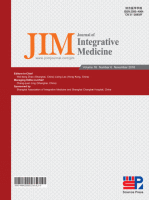Submitted by Rachael L. 4 Jul 2023 - Added by Adrian Y. 13 Jul 2023
This article contains findings obtained from research on animals:
- The results from animal research studies should not be directly applied to humans and the results may not generalise to the human population.
- There may be significant differences between species in terms of physiology, physiology, and pharmacology, as well as differences in the way diseases and treatments are modelled in animals.
- Any conclusions drawn from animal research should be considered with caution and in the context of other types of research studies such as observational studies, clinical trials, and reviews of the literature.
